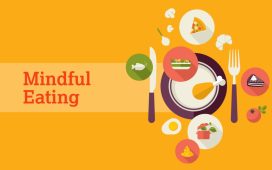Are you embarking on a weight loss journey? Keep an eye on the details that matter. In Wilmington, specialists emphasize understanding lipoprotein lipase. This enzyme plays a big role in managing fats during your slim-down phase.
But be wary; higher insulin levels can switch its function to fat storage, especially if you’re battling insulin resistance. Moreover, balance is key—not just in diet but within your gut’s ecosystem, too!
Understanding Rebound Weight Dynamics
When you lose weight, your body responds in ways that can lead to gaining it back. One key player is an enzyme called lipoprotein lipase; its job is to break down fat for energy. When dropping pounds, this enzyme works overtime, but here’s the catch: insulin puts a brake on it.
If there’s too much insulin around, the result could be more stored fat. Your gut health matters, too, since it affects how well you process food and regulate hunger through hormones like leptin, which signals fullness. A balanced microbiome helps prevent rebound gains by managing these hormones effectively.
Favor foods rich in fiber and dietary polyphenols nurture good bacteria, aiding weight control efforts! Small choices add up: think whole grains, fruits, and veggies daily. They’re crucial because they promote better sensitivity to regulation cues from insulin and leptin, plus they manage inflammation along with the metabolism of fats and sugars.
In short, watch what’s on your plate; it shapes calories burnt or consumed and the invisible helpers deep within our guts responsible for maintaining balance post-weight loss success! Remember that Wilmington Weight Loss specialists understand these dynamics even if we don’t discuss banned strategies today. Connect with them as part of your journey toward lasting health transformation without bouncing back!
Sustainable Eating Strategies Post-Diet
After your diet, choose whole foods like fruits and vegetables. These have nutrients that help keep you full longer. Also, drinking lots of water is key to staying hydrated and helps control hunger.
Plan meals to avoid quick, less healthy choices when hungry. Include proteins to build muscle, which burns more calories even when you are at rest. Remember portion sizes matter – use smaller plates or check serving guidelines on labels to stay in line with your body’s needs without excess.
Wilmington Experts Debunk Yo-Yo Dieting Myths
You might think slimming fast will improve your life, but experts find it’s not that simple. People often start diets because they feel bad when looking at others or themselves; it’s rarely for health. They lose some weight, sure.
It comes back – often more than before! This cycle can mess with your head: guilt creeps in as the pounds return. To break free from this yo-yo trap, you must ditch those extreme habits; starving yourself doesn’t work long-term!
Instead of only watching scales and calories burned during exercise, try finding joy in moving your body just for fun and eating well without punishing yourself over every bite. Sadly, many stay stuck on this merry-go-round despite wanting off—the pressure is tough to shake off.
To avoid rebound weight gain, stay mindful of your eating habits post-diet. Eat balanced meals, which nourish the body and sustain energy levels.
Consistent sleep patterns, which support metabolic health, are also crucial. Always remember that moderation beats extreme dieting—short-term fixes lead to temporary results, but lifestyle changes pave the way for lasting success at Wilmington Weight Loss. For more information, visit our website.















